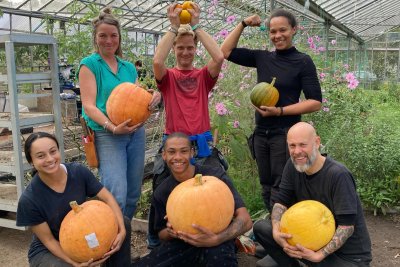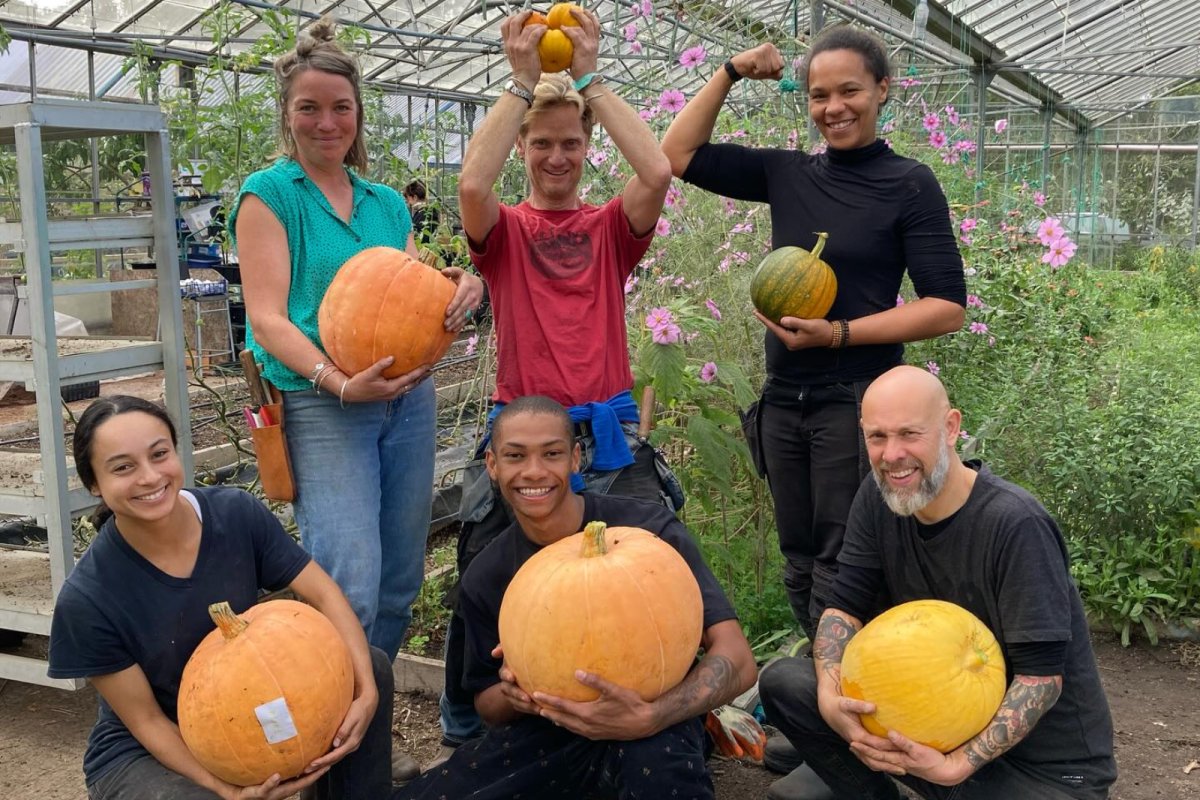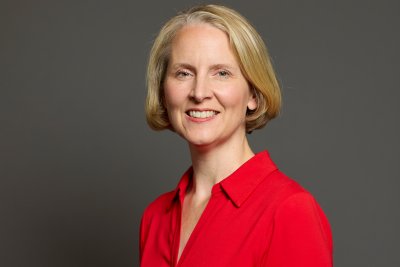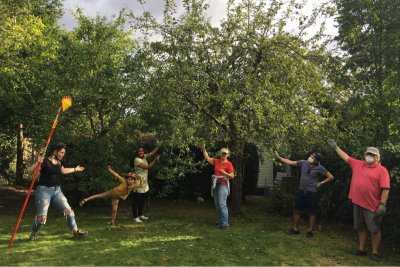 Growers at Organiclea proudly displaying their pumpkin harvest. Credit: Organiclea
Growers at Organiclea proudly displaying their pumpkin harvest. Credit: Organiclea

Healing our nation one veg patch at a time
How can urban food growing and community gardening heal the wounds of colonialism and nationalism?
In light of the recent ‘Unite the Flag’ protests that erupted on Saturday 13 September in London, many people will be asking how do we heal as a nation, with so much division and anti-migration sentiment? Land and colonialism might not be at the forefront of many people’s minds but I would argue that the simple act of growing food plays a vital part.
I wanted to share community food grower, Greg Frey's, recent substack “Belonging to a Better Nation: Anti-Racism, the Land and Englishness” which explores the complex ways in which far-right nationalism intersects with food and land.
But what does all this have to do with growing some pumpkins?
Greg, who is part of the Waltham Forest Food Growers Network, and spearheading the local Right to Grow campaign, points out a well-known fact in our sector, that farming, conservation and working outdoors are the least ethnically diverse industries in the country. As well as the lack of representation in land work, it’s well documented that black and people of colour have less access to and feel less welcome in green spaces.
As our webinar series Unearthing Empire revealed how colonialsm has shaped what we grow, eat and value here in the UK, it also looked at how we think about who has a right to land.
Those who aren’t involved in farming or food growing may not realise that we sometimes find ourselves experiencing or witnessing racism and conflict within these seemingly bucolic and benign green spaces. Ideas of land, colonialism and otherness can come into sharp focus and are felt and experienced especially keenly for BPOC landworkers and community growers.
Yet despite this tension, these spaces can also be havens, offering an alternative way to relate to the land and each other - one that's built on reciprocity, autonomy, curiosity, pluralism, humility, abundance, and love.
So what exactly does identity and belonging have to do with urban food growing? And what place does community food growing have in tackling far-right nationalism?
Read on to learn more about Greg’s vision of a community food revolution on these lands.
Belonging to a Better Nation: anti-racism, the land and Englishness
Capital Growth: Connecting a network of London growers.
Sustain
The Green House
244-254 Cambridge Heath Road
London E2 9DA
020 3559 6777
sustain@sustainweb.org
Sustain advocates food and agriculture policies and practices that enhance the health and welfare of people and animals, improve the working and living environment, promote equity and enrich society and culture.
© Sustain 2026
Registered charity (no. 1018643)
Data privacy & cookies
Icons by Icons8







